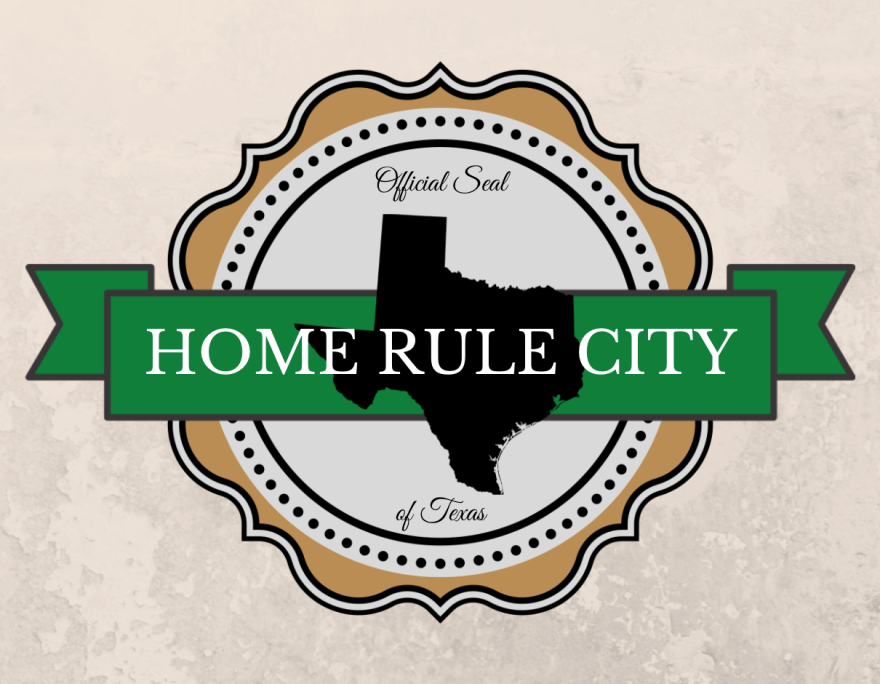They’re going to be singing the same song in Princeton soon, but with a hitch from the previous choruses that have been heard.
Princeton voters in November will be asked a question that if they answer affirmatively will take the discussion of a home-rule charter for the city to the next level. If voters say “no” to the question, the issue dies. Gone for a long time … or so it would seem.
The question will be whether to ratify the formation of a citizens’ committee to draft a home-rule charter for a rapidly growing Collin County community. This issue has a number of wrinkles that would need a proverbial hot iron. A “yes” on the November ballot measure would trigger a second election in May on the actual home-rule charter.
The city can appoint a committee prior to an election. The committee can begin work on crafting a home-rule charter. It can lay the groundwork for a document that would govern the city. Then voters on Nov. 2 will have their say on whether that panel should proceed.
City Manager Derek Borg said the city has no charter document drafted. It does, he said, have a “template” left over from previous charter elections, all of which have failed. The election coming will be the city’s fifth try at approving a home-rule charter.
Princeton sits at a crossroads. The 2020 census has pegged the city’s population at more than 18,300 residents, far greater than the 5,000-resident minimum required by Texas law to enable a city to seek a charter. Princeton currently is governed as a “general law” city, meaning it has to adhere to rules set by Texas statute.
Mayor Brianna Chacon said voters “can say ‘yes’” with the November vote. If they grant approval, she said, then the committee can proceed to finish its proposal to present to voters in May 2022. If voters say “no,” she said, “that’s it.” What happens then? When could the city try to put yet another charter issue on the ballot? Chacon said the cannot move too rapidly. Doing so would require the city to call a special election, which she said would be an expensive endeavor. “We would need to be careful,” she said.
Borg said he cannot speak for the city on whether voters should approve the measure, but he said he can offer a “personal opinion.” His opinion is that the city needs to exert greater control over its future and a charter accomplishes that for Princeton.
“A home-rule charter is good for the city,” Borg said. “It offers the ability for residents to have a say in how they are governed. It also provides for referendum and recall. And that is important,” he said. Under general law, if residents are upset with a City Council member, they cannot vote to remove him or her; a home-rule charter gives residents the recall power they currently lack.
The four previous charter election defeats have hinged on some residents’ concern over annexation and taxes. The Texas Legislature settled the annexation issue in 2017 by prohibiting cities from annexing property without property owners’ permission. The Legislature also has set limits on the amount of tax revenue cities can seek from residents.
Most of the resistance previously has come from families that reside outside the Princeton city limits. Past campaigns against a city charter have been spearheaded by those who live within the city’s “extraterritorial jurisdiction.” Borg said those families carry some sort of grudge against the city and remain determined to defeat future attempts to approve a home-rule charter.
Those anti-charter residents, though, are facing a potentially huge foe in the form of a staggering growth in population within the city limits. Princeton’s population effectively tripled between the 2010 and 2020 census, which could augur well for the pro-charter crowd to enlist support among residents who have moved recently into the city. Chacon expressed confidence that Princeton’s “changing demographics” can bode well for the future of a home-rule charter. Chacon said she is receiving positive feedback from new residents and she vows to continue working the community to solicit residents’ opinions on the home-rule issue.
Princeton is planning a town hall meeting in September. It will invite residents to attend and to express their views on whether to allow official creation of a home-rule charter committee. Chacon wants the meeting to occur early in the month.
Borg doesn’t know where precisely the town hall event would occur, citing a lack of meeting space at City Hall. He said he plans to look for a larger venue, perhaps at Princeton High School, that would accommodate what he hopes would be a significant number of residents interesting in speaking out about the home-rule charter.
Chacon said the city in the past has relied on the high school to provide enough space for a large number of residents attending a meeting that sets the future for the city they all call home. She is hoping for an overflow crowd.
John Kanelis, former editorial page editor for the Amarillo Globe-News and the Beaumont Enterprise, also is a former blogger for Panhandle PBS in Amarillo. He is retired but is still writing. Kanelis can be contacted via Twitter @jkanelis, on Facebook or his blog, www.highplainsblogger.com. Kanelis lives in Princeton with his wife, Kathy.







